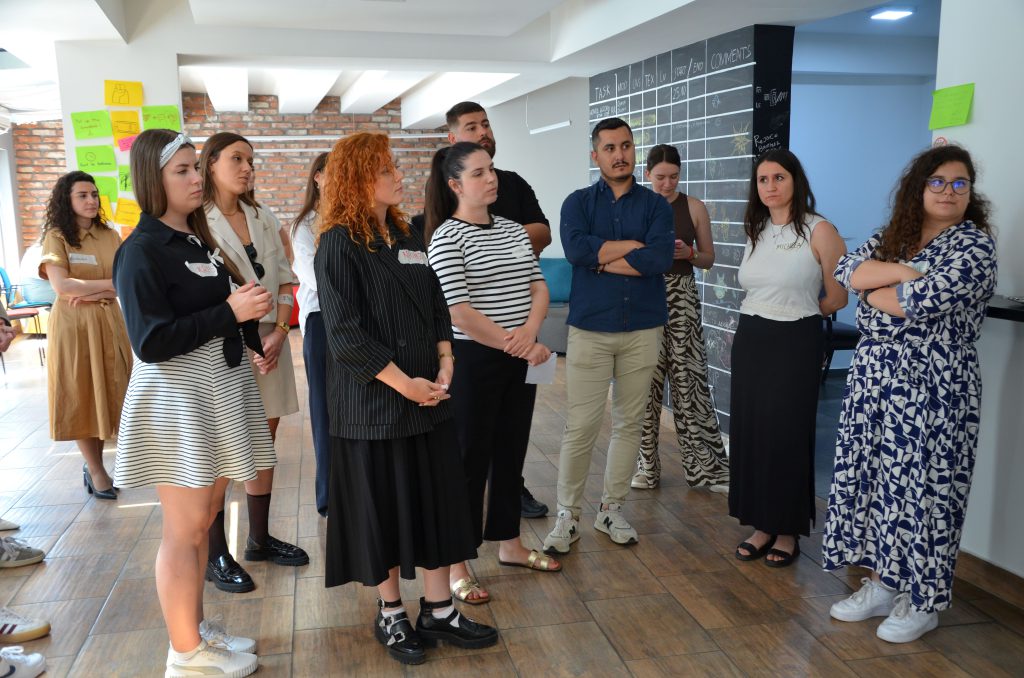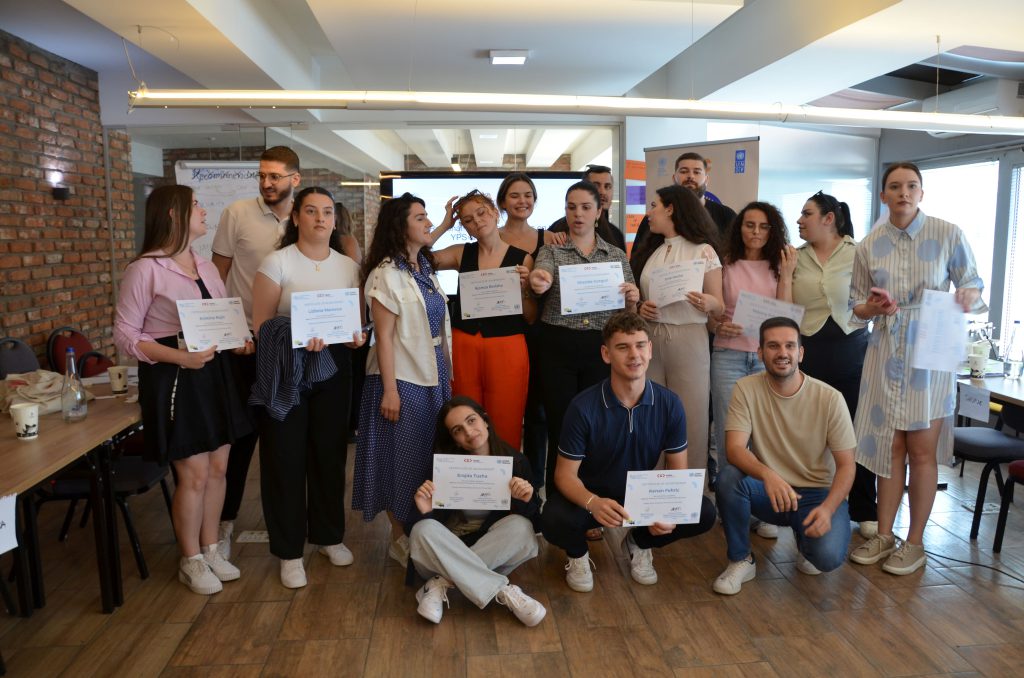
On June 22–27, Skopje was the meeting point for 23 young leaders from across the region who gathered to build their skills to become a cohort of trainers who will champion the Youth, Peace and Security (YPS) and Women, Peace and Security (WPS) agendas.
The five-day Training of Trainers (ToT) wasn’t just about building knowledge. It was about activating networks, shifting mindsets, and making peace and inclusion real at the local level.
Why It Matters
In a region still grappling with the legacies of distrust and inequality, the need to empower youth as active changemakers has never been more urgent.
The Youth Peace and Security Agenda highlights the potential of young people in peace and trust building and promoting positive dialogue. “Instead of seeing youth as a problem, the YPS Agenda sees us as the solution – as peacebuilders, leaders, and partners in decision-making.” pointed out Shpëtim Ramadani, a participant.
“As a young woman from the Western Balkans, the Women, Peace and Security agenda resonates deeply,” shared Eva Cvetkovska. “It challenges us to confront the legacies of conflict, patriarchy, and exclusion, and empowers youth to build a more just, peaceful, and equal region from the ground up.”
Organized by UNDP, UNFPA, UN Women, the UN System Staff College and the Network of Local Associations of Local Authorities of South East Europe (NALAS) with support from the UN Peacebuilding Fund, this activity is part of the “Youth 4 Inclusion, Equality & Trust” project—a regional initiative that empowers young people to engage in constructive narratives, strengthen intercultural dialogue, inclusion, gender equality and create mutual understanding and trust.
From Learning to Leading
The participants—ranging from local youth officers to grassroots activists—embarked on a dynamic learning journey designed around three interconnected components: preparatory online sessions, an intensive five-day training held in Skopje, and a structured post-training mentorship and follow-up phase. This approach ensured both foundational knowledge and practical application, while also building sustained support for local implementation of the YPS and WPS agendas.

“This training gave me new tools, new perspectives, and most importantly, showed me that the YPS agenda is tangible—it’s on us to find what works best for our societies,” said Nadira Cjurija. “It reassured me that I can do better.”
The curriculum, rooted in adult learning principles and regional realities, gave participants the tools to lead trainings in their own communities and institutions. Roleplays, scenario planning, and hands-on facilitation practice made the sessions engaging, practical, and deeply collaborative.
“The most valuable part of the training was the chance to meet so many new faces and build connections with colleagues from across the Western Balkans,” said Kenan Fahrić.
“I’m hopeful this initiative—and many more—will keep bringing us together to collaborate and grow, because there’s so much, we can do when we support and inspire each other.”
A Generation Ready to Lead
The goal of the program is clear: to build a pool of local trainers who will continue delivering YPS and WPS training and embed peace and inclusion principles into municipal life. With support of NALAS, the follow-up phase will include peer exchanges, twinning activities, forums, and local workshops—led by the participants themselves.
This training was a milestone. But more importantly, it was a signal of what’s coming next:
A region where youth cooperation becomes the foundation for lasting stability and equality.
As one of the participants, Arbnora Qerimi said: “The Youth, Peace and Security agenda gives us the seat at the table. Now it’s our time to use it—and bring others with us.”